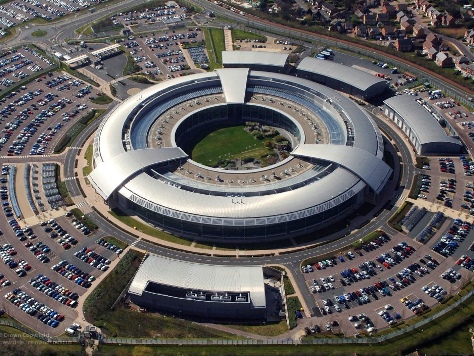
Britain’s spy agency GCHQ has said that social networks such as Twitter, Facebook, WhatsApp and YouTube are the “command and control networks of choice” for terrorism and that the companies which run them must do more to help combat extremism. GCHQ is right.
What they don’t know is just how deep the problem is in Silicon Valley, where “freedom of speech” is cynically used to maximise profits and avoid responsibility–nor, probably, do they realise how wacky Californian politics can be worryingly sympathetic to, among other groups, Islamic extremists.
Take CloudFlare, a service designed to keep websites online in the event of hacking or so-called “denial of service” attacks. In August 2013, The Kernel revealed that CloudFlare, despite being made aware that it was hosting material from the notorious Kavkaz Center, refused to take that terrorist material offline.
The Kavkaz Center is “the official news source for ‘the Caucasian Emirate,’ a militant group seeking to establish an Islamic state in the Caucasus. They use the Kavkaz Center website to claim responsibility for terrorist attacks, often sharing explicit and bloody images of their violent actions,” wrote my colleague James Cook at the time.
Cook continued: “The site posts extremist and terrorist material, but thanks to CloudFlare’s trademarked Always Online technology, it’s able to resist regular internet attacks and continue to spread the news of the latest terror attacks by the Chechen mujahideen.”
That’s the tip of the iceberg, as anyone who has picked up a newspaper in the last year will know: Google’s YouTube platform regularly hosts beheading videos by Islamic terror groups like ISIS, leaving the videos online long after it is made aware of their existence, and Twitter has hosted and continues to host accounts run by terrorists.
One of the reasons technology companies refuse to edit content on their platforms, except in extreme cases, is that they don’t want to be held responsible for it: if you edit one thing, you might be expected to edit the rest, goes the thinking, so it’s safer to absolve yourself of responsibility entirely and just claim you’re a “platform.”
Furthermore, curating content might open you up to the claim that you’re a “publisher,” and therefore legally responsible for the massive copyright infringement you host and disseminate. (Some people say YouTube’s entire business model rests on its users’ rampant disregard for copyright law.)
YouTube and Twitter are anxious to dodge that one, too–because it would only take one big intellectual property claim to shut their entire networks down, or to cost them an absolute fortune in fines. Remember, these tech companies have big media profiles, but not very much in the bank compared to a Hollywood studio or record label.
So they’re anxious not to police any content on their services, however appalling, unless forced into it. There’s just one problem: they already do so, in some cases extensively–for example, manipulating or prioritising content they can sell ads next to. Which begs the question: why aren’t they taking their responsibility to keep terrorists off their servers seriously?
It couldn’t be, could it, that they–like, say, the Guardian or the Democratic Party–secretly sort of sympathise with the ideals, if not the methods, of America-hating groups in the Middle East? No, surely that’s going too far. And yet look at how sluggish they are to clamp down on recruitment and marketing from terror groups that kill US citizens.
Spy agencies are right to be frustrated by the lack of co-operation from Google, Facebook and others. GCHQ director Robert Hannigan says: “To those of us who have to tackle the depressing end of human behaviour on the internet, it can seem that some technology companies are in denial about its misuse.”
It seems to me that this will require legislation to correct, since the companies concerned have proven themselves incapable of acting sensibly of their own volition, and of listening to their own customers, the majority of whom, if asked, would surely be appalled that their family photos and private messages are sharing a platform with people who want to destroy our way of life.
It’s precisely that way of life–Western capitalism–by the way, that enabled the growth of internet companies terrorists now use to spread their messages of hate. But I suppose the irony of that is lost on ISIS–just as it is, apparently, on Twitter and Facebook.

COMMENTS
Please let us know if you're having issues with commenting.